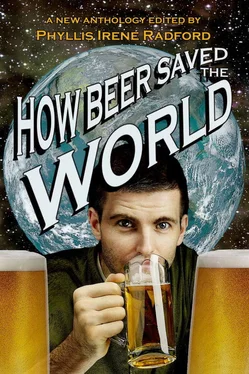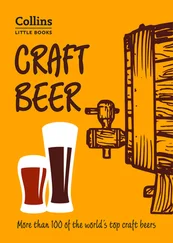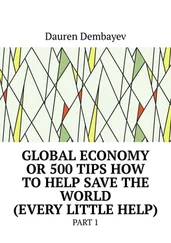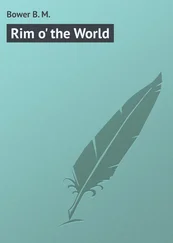“Let me top you off,” she said. He pushed his beaker forward and she refilled it.
The sun burned red on the mountains, but down here in the valley a long blue evening slowly cooled the furnace air. Two farmers shuffled in, sweaty with the day’s labor. They stared at him, the stranger, open-mouthed. He knew these, the lowest of the low, day laborers scarcely better off than slaves. When they held out their beakers and clay pots Suri filled them all in turn.
He drank slow and deep, reflecting muzzily on the fate that had set them all in their places. Why was he set high, while they were below? And yet a sup of beer here was the brightest moment of the day for all men. Here in the middle only was where gods and men could meet…
“Give way. That is my seat.”
Deliberately he finished sipping, removing the reed before looking up. Towering beside him was a meaty younger peasant, surely of more muscle than wit. He sighed, wiping a fleck of foam from his beard. “I will kill you. But only if you force me to it. I think Suri here would not like the loss of your custom.”
“I would dislike it very much,” Suri said firmly. He kept his attention fixed on the big farmer, but from the edge of his eye he saw her jerk a finger down and sideways. His big axe was tucked close to hand between the bench and the table.
As with bulls or dogs, the commanding gaze of the better was sufficient. The farmer fidgeted and looked away. Suri held up her dripping pitcher and he set down his beaker. When it was full he carried it meekly out into the evening. “This is what I’ve come to,” he grumbled. “Is there more in there?”
“Yes, plenty.” She adjusted the strainer and poured. “So you do not look to many adventures facing down farm lads.”
The thought of how it used to be made his chest ache. Once, his rage would have been a black storm, breaking over this village like a thunderclap. He would have roared and ripped and destroyed. It would have been so much fun! His fiery spirit had been proverbial, looming behind him like a shadow of dread. Now he could only lean over his beer. “My life is over. I have stared into the abyss. I shall curse the gods and die. After,” he added thoughtfully, “I get drunk.”
She nodded approval. “Up in the hills they have a saying that one should always consider a new project drunk, and then sober.”
“Or…” He brooded, waiting for the brew to settle. “I could go back. Grab that sneaky old man and wallop the truth about eternal life out of him.”
“If one has eternal life, I’d think a thrashing wouldn’t be a bother.”
It sounded sensible, but rather than admit it he drank again. After another long pause she said, “Are you so unhappy, then?”
He considered. “When I set out, I was aboil with grief and fear. But now—” He spoke with a sort of surprise. “I am… resigned. Surely this is despair.”
“Could you be… at peace?”
He gripped the beaker hard with both hands, but it was well-fired and did not crack. “I have been restless, a seeker and disturber and wanderer, since boyhood. My people complained of it. I have never been at peace before. It is not how the gods made me.”
“And nobody ever called you a toad before either.” Her words startled him into a bark of laughter. “There’s a first time for everything,” she went on. “Perhaps you should learn the ways of peace.”
Another group of locals came in. Word must have got around. Nobody spoke to him or met his eye; he was as invisible as a god. As she poured for them he drank his own beer slowly, rolling the complex flavor across his tongue: bitter and sweet and sour, all unified in one mouthful. At last he said, “It sounds dull.”
“Surely no duller than those pointless conflicts and windy combats.”
“True enough.” It was fully dark now, and she set out small oil lamps, one on the table and a couple more in wall niches. The flames were no larger than his thumbnail, the light so meager that he could make out only the curving paleness of her linen shift, and the occasional glint of her glance. It was plain that he would have to ask, for she would not offer. “Teach me then the ways of peace, for I am weary of war.”
“You need no teacher,” she said. “You know the way. You have been above, and you have traveled below. Now you could go home. Embrace your wife–you have a wife?”
“Several.”
“A good beginning, then. Beget children and love them, Gilgamesh. You found your destiny, and it was ashes in your mouth. Now, choose your life and live it.”
He could not remember now when, or even whether, he had told her his name. The brew must be softening his skull, the way soaking softened a hard nut before planting. What sprout would burst forth from within? The words emerged from his mouth without, apparently, passing through his head: “Suppose I embrace you. I would enjoy that.”
She smiled. “Not after this much beer, you won’t. And do you want to start yet another feud with a goddess about sex?”
Again he almost laughed. “When you put it like that…” It came to him that the urgency down below was a much more mundane need. Yet another customer came in, and he took the opportunity to gather up his axe and rise. On his feet the fumes rose to his head with alarming speed, and he tottered.
She steadied him, leaning across the narrow table to grip his elbow. “Grow up,” she said. Quick as a feather flick she pecked a kiss onto the side of his head, adding more practically, “The piss jar is around in back.”
He took care not to stumble on his way out. But once past the awning it was easy to follow the wall around to the back, where the big reeking jar was lit by another tiny lamp in the window-slit above. The valuable urine must have been collected recently by the dyer or the tanner. His water made a fine ringing sound in the empty vessel, and the release seemed to clear his thoughts. Her beer restored youth, she said–for a while. Indeed he felt full of strength, refreshed and ready. He had sat complaining long enough. It was time to be a-doing. Like the farmers, he had his allotted role in the cosmos, and there is always work for a king to do.
He tightened his sandal straps. For a moment he thought of going back to say goodbye. But the moon was high enough now to light the way, and a breeze tugged at his cloak, inviting him on. If he started now he could get most of the trip done in the cool, and arrive in the city by tomorrow night. And it came to him that there was no need to return. There were bars in Uruk, and the goddess of the brew presided over each one. He would see her there.
The Band of Brewers
Bob Brown
Zombies hate beer. Before they got eaten, the scientists said it might be the Hops.
-The Idiot’s Guide to the Zombie War
There was a time in the world when the idea of a Zombie Apocalypse was on par with winning the lottery, something to contemplate when sitting on the porch watching red tail hawks with a cold beer in your hand.
That was, of course, before the Zombie Apocalypse. Frankly, I’d have rather won the lottery.
Now that it’s happened, the beer-induced planning paid off, and here we are. There seemed no better place to ride out the Zombie Apocalypse than the Angus Grant brew pub in Kennewick, Washington.
We planned on surviving in a degree of comfort. The brewery was in a big-ass stone building, used to be a warehouse, with no windows and the loading dock only opened to a parking area enclosed on three sides. That fourth side opened to the street with a gated chain link across that. Not that ten foot of chain link would help if it got really ugly. I’m told the East Coast has a pack of two million munching its way to Canada. They might stop it in New York, but my money’s on the zombies. With winter coming, I figure it will take an ice storm and a couple thousand Canadian loggers with chainsaws. We’ll know in the spring.
Читать дальше











